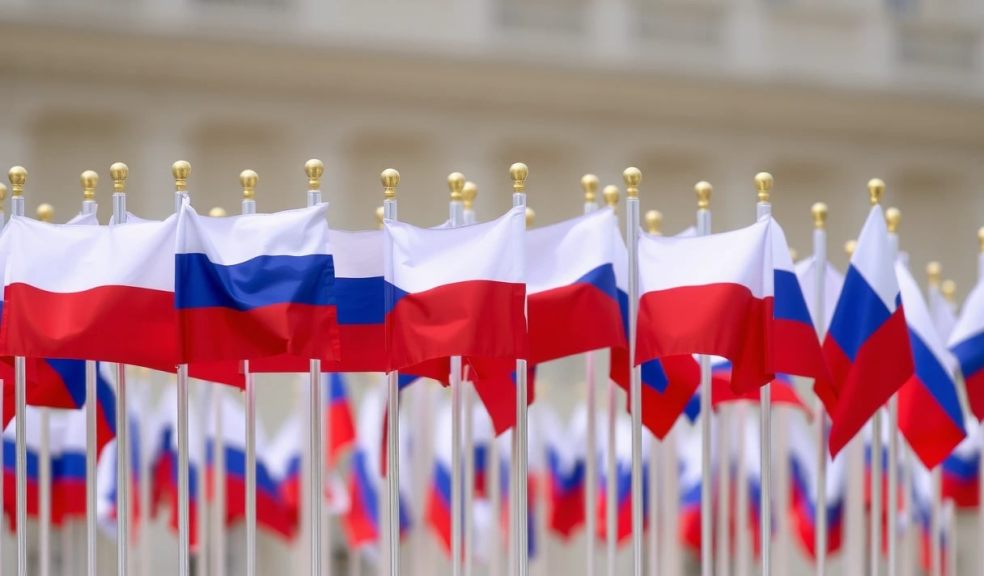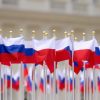
Why Sanctions in Russia Fall Short of Strategic Objectives
Western nations have deployed unprecedented economic measures against Russia following its invasion of Ukraine in February 2022. These sanctions aim to cripple Russia's war-financing capabilities, isolate its economy, and potentially foster internal pressure for policy change. However, careful examination of economic data reveals significant shortcomings in this approach, with unintended consequences that may ultimately undermine Western strategic objectives.
Russia's Economic Resilience Defies Expectations
Despite coordinated Western pressure, Russia's economy has demonstrated remarkable adaptability. This poses the question, are Russian sanctions working? According to Reuters, Russia's GDP grew by 3.6% in 2023 and is projected to grow another 2.6% in 2024. This growth directly contradicts early predictions of economic collapse that would force Russia to abandon its military campaign.
The Russian Central Bank's swift policy response played a crucial role in stabilizing the economy. As outlined in Carnegie Endowment analysis, authorities implemented a combination of capital flow restrictions and a 20% interest rate increase immediately following the invasion. These measures proved effective, with banks seeing "90% of initially withdrawn funds returned to Russian accounts" within just two months, according to Carnegie Endowment.
The Gold Strategy Undermining Financial Isolation
A critical yet underappreciated factor in Russia's economic resilience is its strategic pivot to gold. As The Conversation reports, "Russia is now the second largest producer of gold at 324.7 tonnes in 2023, behind China at 374 million tonnes." This positioning has provided Russia with a sanctions-resistant mechanism for wealth preservation and international transactions.
Moscow has leveraged this resource effectively, with significant implications for Western financial pressure. According to The Conversation, "In early 2022, Russia pegged its currency, the ruble, to gold, and 5,000 rubles will now buy an ounce of pure gold." This strategy has helped stabilize Russia's currency while creating alternative financial channels that bypass Western-controlled systems.
Uneven Implementation Creates Systemic Weaknesses
The impact of sanctions on Russia has been substantially diminished by inconsistent enforcement and exploitation of various loopholes. A POLITICO investigation highlights how countries like Turkey, the UAE, and various Central Asian nations have emerged as crucial intermediaries for goods ultimately destined for Russia. Moscow formalized this "parallel import" system in May 2022, officially listing goods that could be imported through third countries.
Even within the EU, enforcement challenges undermine sanctions efficacy. According to POLITICO, a recent EU sanctions package collapsed due to disagreements over business carveouts, with Latvia and Lithuania vetoing extensions that would allow EU firms to continue operating in Russia despite existing restrictions.
Global Economic Reconfiguration
Perhaps most concerning for Western policymakers is how sanctions have accelerated unfavorable geopolitical realignments. Russia and China have deepened their economic integration, with bilateral trade exceeding $200 billion in 2023. According to Chinese government data cited by Nikkei Asia, Chinese exports to Russia surged by 50% during this period.
The sanctions regime has also catalyzed broader challenges to dollar dominance. As Al Jazeera reports, "From India to Argentina, Brazil to South Africa and the Middle East to Southeast Asia, nations and regions have accelerated efforts in recent months towards arrangements aimed at reducing their dependence on the dollar."
This shift manifests in concrete policy developments, such as China's President Xi Jinping calling for oil trade in yuan during a Gulf summit in Riyadh, as reported by Reuters. Such developments suggest that Russian sanctions may inadvertently accelerate the fragmentation of the global financial system, potentially diminishing Western economic leverage over time.
Asymmetric Costs for European Economies
European economies have absorbed significant costs from the sanctions regime, creating competitive disadvantages and economic strain. POLITICO reporting on aviation presents a stark example: "With the world's largest country turned into a giant no-fly zone for Western operators, passenger and cargo carriers are forced to take longer routes to avoid Russia." Meanwhile, Chinese airlines maintain direct access to Russian airspace, gaining substantial advantages on European-Asian routes.
Energy disruptions have similarly imposed asymmetric costs. According to The Guardian, Western nations paid Russia more for oil and gas in the first year of the war than they provided to Ukraine in military aid over two years, highlighting the contradictions within the sanctions approach.
Strategic Recalibration Required
The mixed record of Western sanctions against Russia suggests a need for fundamental reconsideration of economic pressure as a geopolitical tool. Rather than viewing sanctions outcomes through binary success metrics, policymakers might benefit from understanding these measures as complex instruments that reshape global economic relationships in ways that extend far beyond their intended targets.
Moving forward, effective sanctions strategies will require greater investment in enforcement mechanisms, realistic assessment of target adaptation capabilities, and careful consideration of potential blowback effects. They must also account for how economic pressure accelerates shifts in global financial architecture that could ultimately constrain Western policy options in future geopolitical contests.

















